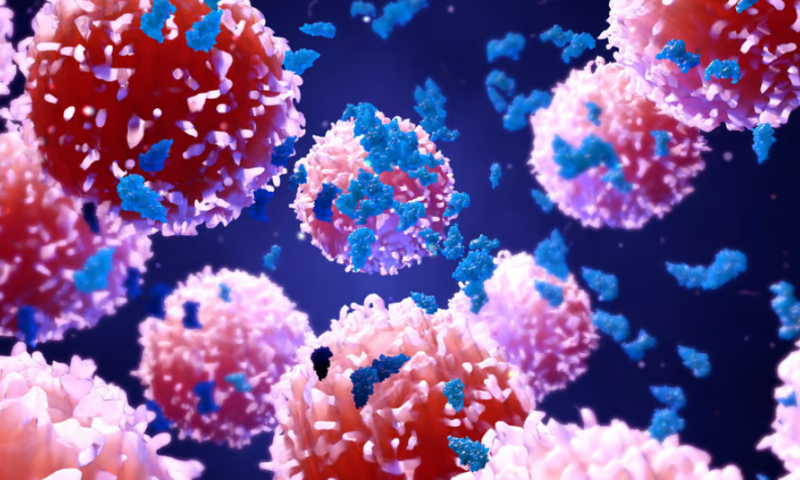T-cell therapies work well for blood cancers, but they come with caveats—a major one being that they’re cumbersome and expensive to tailor to a patient’s specific cancer type. On top of that, the therapy must be re-customized to home in on a new target each time the cancer evolves.
Now, a new universal receptor system designed by a research team from the University of Pittsburgh could make engineering custom T-cell therapies far more efficient. Part of the company’s technology has already been licensed by Pennsylvania-based biotech Coeptis Therapeutics.
In a study published May 9 in Nature Communications, the scientists described how they engineered T cells with receptors containing a special enzyme called SNAPtag. The engineered cells are administered alongside antibodies for proteins specific to a patient’s cancer. These antibodies are labeled with a molecule called benzylguanine, which forms a covalent bond—the strongest type there is—with SNAPtag. This welds the antibodies to the receptor so it’s able to recognize the cancer cells.
“We wanted to make receptors that wouldn’t just bind with the adapter antibodies—it would actually fuse with them,” senior author Jason Lohmueller, Ph.D., told Fierce Biotech Research. “This would allow them to have more potent activity so we could get by with a lower amount of that antibody and get more sensitive responses.”
Lohmueller’s lab, together with the lab of Alexander Deiters, Ph.D., also at the University of Pittsburgh, is one of the first to use SNAPtag in a therapeutic setting. Benzylguanine by itself is an antineoplastic agent that’s been used to make tumor cells more vulnerable to cancer drugs. SNAPtag and benzylguanine together have been used in imaging in animals and to label proteins.
“Before, the enzyme was being viewed more as a tool,” Lohmueller explained.
The researchers designed two different types of receptors containing SNAPtag: chimeric antigen receptors and SynNotch receptors, synthetic receptors that can be programmed to turn virtually any gene on or off. Importantly, multiple antibodies can be fused to the receptor at once or in succession. That makes it theoretically possible to head off mutations, prevent relapse and circumvent the costly process of re-engineering T cells for another round of therapy, Lohmueller said.
The researchers tested out their system in human cells and mouse models, targeting human CD20 and HER2 to assess its potency against blood cancer and solid tumor antigens. All of the mice that received SNAP-CAR T cells along with the antibodies showed significant tumor regressions. Around 80% of the mice appeared to be tumor-free in the experiments targeting the HER2+ tumors. There were five mice per group and the experiments were replicated multiple times, according to Lohmueller.
The team is now working on gathering data about the technology’s efficacy against other tumor types. Coeptis has licensed the company’s SNAP-CAR system and plans to first target HER2-expressing cancer in a potential clinical program, according to Vice President of Operations Dan Yerace. Then, the biotech will identify additional targets with the hopes of addressing unmet medical needs in oncology.

